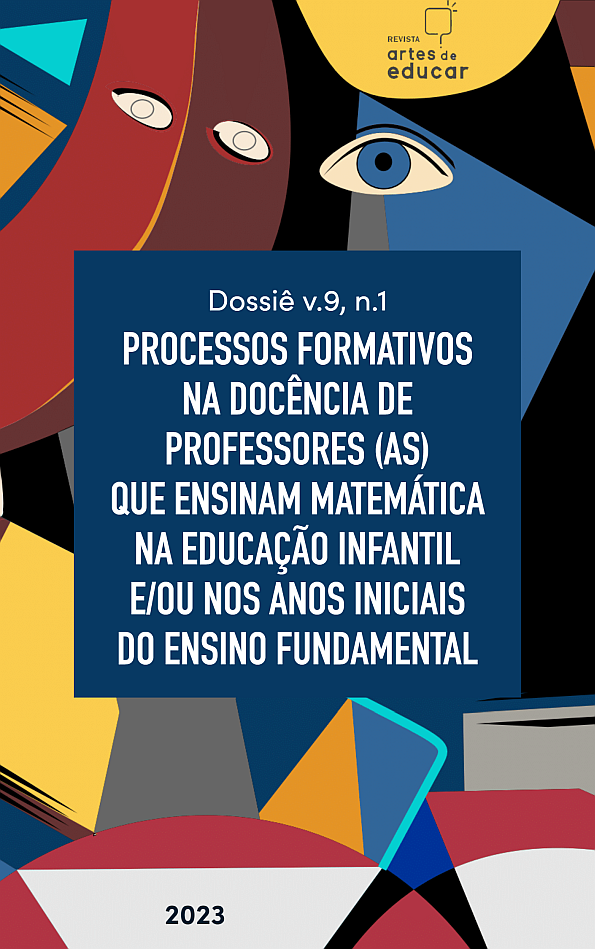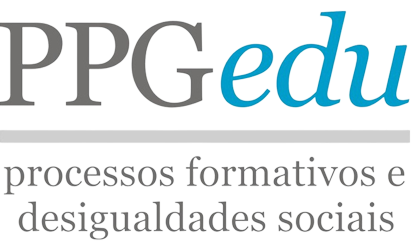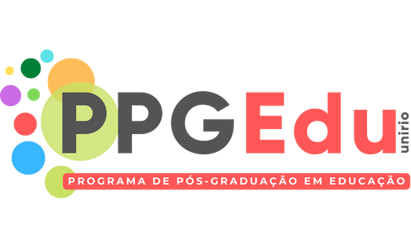WORSHOPS ON ARTISTIC PRACTICES AS LEARNING PLACES: WHAT DOES IT MEAN?
DOI:
https://doi.org/10.12957/riae.2023.65577Keywords:
Learning, Art, Cognition, Invention, Sensitivity.Abstract
The article aims to reflect on the issue of learning, based on artistic practices workshops, held, between 2014 and 2019, with elementary school students from a school for the visually impaired in Rio de Janeiro. The premise was that this was a learning space, but what does this mean? We will follow the tracks of Deleuze, Kastrup and Gallo as a starting point and expand from there. Those theorists advocate non-representational learning. Learning is not restricted to the passage from not knowing to knowing, but rather involves sensitivity, a condition for transforming oneself and the world. So the problem is how to become sensitive? We will proceed by producing a dialogue with the enactive approach to cognition and with a rereading of the concept of Proximal Development Zone in order to propose a Zone of Sensitivity.References
CAPPUCCIO,Massimiliano.; FROESE,Tom. (Eds.). Enactive cognition at the edge of sense-making: making sense of non-sense. Palgrave Macmillan UK, 2014.
DELEUZE,Gilles. Proust e os Signos. Rio de Janeiro: Forense Universitária, 2006a.
______. Diferença e Repetição. Rio de Janeiro: Graal, 2006b.
_____. Spinoza. Philosophie Pratique. Paris: Éditions de Minuit, 1981.
DI PAOLO, Ezequiel. A mente enativa: conceitos e análises pertinentes à educação. Youtube. 15/03/2021. Disponível em: https://www.youtube.com/watch?v=RdHCb6CuVvE&t=805s.
ELIAS, Carime; AXT, Margarete. Quando aprender é perder tempo: compondo relações entre linguagem, aprendizagem e sentido. Psicologia & Sociedade. 16 (3), 2004, p.17-28.
GALLO,Silvio. As Múltiplas Dimensões do Aprender. COEB, 2012. http://www.pmf.sc.gov.br/arquivos/arquivos/pdf/13_02_2012_10.54.50.a0ac3b8a140676ef8ae0dbf32e662762.pdf
KASTRUP,Virgínia. A aprendizagem da atenção na cognição inventiva. Psicologia & Sociedade. 16 (3), 2004, p.7-16.
______. Aprendizagem arte e invenção. Psicologia em Estudo, v.6, n.1, 2001, p.17-27.
______. A invenção de si e do mundo: uma introdução do tempo e do coletivo no estudo da cognição. Campinas-SP: Papirus, 1999.
KASTRUP, Virgínia.; TEDESCO,Silvia.; PASSOS, Eduardo. Políticas da cognição. Porto Alegre: Sulina, 2008.
MAHONEY,Abigail.; ALMEIDA, Laurinda. Henri Wallon: Psicologia e educação. São Paulo: Loyola, 2012.
MATURANA, Humberto. E VARELA, Francisco. A árvore do conhecimento. Campinas-SP: Editorial Psy II,1995.
MOLL, Luis.C.. (Eds.). Vygotsky e a Educação: implicações da psicologia sócio-histórica. Porto Alegre: Artes Médicas, 1996.
NEWMAN, Fred.; HOLZMAN, Lois. Lev Vygotsky: cientista revolucionário. São Paulo: Loyola, 2002.
PIAGET,Jean. Os pensadores. São Paulo: Abril, 1978.
PRESTES, Zoia. Quando não é quase a mesma coisa: traduções de Lev Semionovitch Vigotski no Brasil. Campinas, SP: Autores Associados, 2012.
VARELA, Francisco. O reencantamento do concreto. Cadernos de subjetividade. São Paulo: Hucitec Educ, 2003.
______. Conhecer. Lisboa: Instituto Piaget, 1990.
VARELA, Francisco., THOMPSON, Evan. E ROSCH, Eleonor. A mente Incorporada: Ciências Cognitivas e Experiência Humana. Porto Alegre: Artmed, 2003.
VYGOTSKI, Lev.S. Obras Escogidas II. Madrid: Visor, 2001.
VIGOTSKI, Lev.S. A formação social da mente: o desenvolvimento dos processos psicológicos superiores. São Paulo: Martins Fontes, 1998.
ZANELLA, Andrea. Vygotski: Contexto, contribuições à psicologia e o conceito de Zona de Desenvolvimento Proximal. Itajaí: Ed.Univali, 2001.
Published
How to Cite
Issue
Section
License
Copyright (c) 2023 Revista Interinstitucional Artes de Educar

This work is licensed under a Creative Commons Attribution-NonCommercial 4.0 International License.
Authors retain copyright to their work, are permitted to publish and distribute their work online (e.g., in institutional repositories or on their personal page) at any point before or during the editorial process, as this may generate productive changes, as well as increasing the impact and citation of published work.
The acceptance of the text implies the authorization and exclusivity of the Revista Interinstitucional Artes de Educar regarding the right of first publication, the published works are simultaneously licensed with a Creative Commons Attribution-Non Commercial 4.0 International License 























